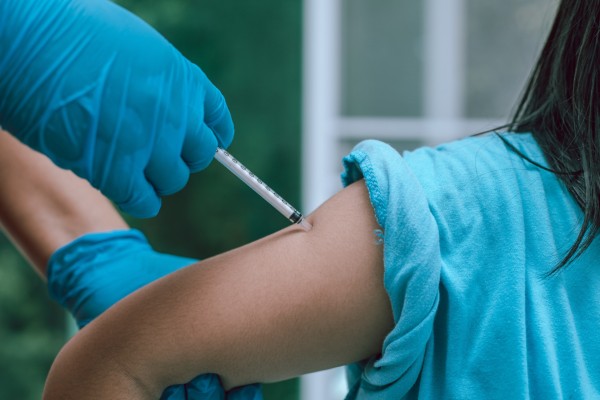What is Sickle Cell Disease
Sickle cell disease (SCD) is one of the most common serious inherited conditions worldwide.
SCD is a disorder in which red blood cells become sickle shaped in conditions of stress and low oxygen. The sickle shaped red blood cells are unable to pass through small blood vessels easily, resulting in a blockage. Patients with severe SCD may have many complications of their condition including:
- severe episodes of pain requiring frequent hospital admissions (sickle crisis);
- chronic pain;
- stroke;
- chest problems;
- increased risk of infection;
- impairment of brain function;
- kidney failure;
- severe tiredness.
There are approximately 6-8 million people worldwide living with SCD, with 15,000 of those in the UK. At KHP we see a third of the UK patients.
Despite advances in care, SCD is still associated with shortened life expectancy and early death. Quality of life for those with severe SCD is affected with many patients suffering impacts on self-esteem, relationships, education, and employment.
Education is essential to ensure all patients with SCD experience early identification of potential serious complications and initiation of appropriate management. Education is particularly important for children and young people when transitioning from paediatric to adult SCD care.
A major issue is equality of access to treatments. At present in the UK, the only disease modifying drug available for the management of sickle cell disease is Hydroxycarbamide (Hydroxyurea). Across the world access to this drug remains challenging, particularly in developing nations. There are many promising emerging therapies for SCD and access to these therapies will prove vital in the effective management of the disease.
KHP Haematology Sickle Cell Centre of Excellence
KHP Haematology provides clinical leadership for Sickle Cell Disease locally. We’re part of the South Thames Sickle Cell and Thalassaemia Network, which was founded in 2011 and involves 10 trusts, caring for more than 4,000 patients with SCD. As part of this network, we host monthly multidisciplinary meetings where all local clinicians can phone in to discuss complex cases.
We offer a large range of multiprofessional clinics which have allowed us to build up unique expertise in management of chronic sickle complications. Our doctors and nurses regularly speak at meetings across the network to provide education for general paediatric and haematological clinical staff.
Beyond our immediate locality, our lead consultants regularly contribute in developing national guidelines, including the recently published standards for the clinical care of adults with SCD. Our staff are also regularly invited to speak at national and international meetings.
We provide outreach specialist clinics across the network aiming to see every patient with sickle cell disease at least once a year. Patient support meetings are organised regularly and advertised across the network.
The mind and body are inseparable. For more than 20 years we have run an integrated health psychology service. This is now a well-established service for our patients. Psychology staff participate in our inpatient ward rounds and in our outpatient clinics aiming to see all patients at least annually, and more frequently if needed.
We have the largest sickle research portfolio in the UK and offer patients the opportunity to participate in clinical trials with new drug treatments. We were highly rated in recent peer reviews and are exemplars in audited performance in relation to hydroxycarbamide use, acute chest condition, and pain management.
Ageing Well With Sickle Cell
The landscape of sickle cell disease care is evolving, with an emerging cohort of adult SCD patients who face health challenges that were not prevalent a decade or two ago. Many of these patient grapple with severe organ damage and comorbidities typically associated with much older individuals. Managing multiple hospital appointments while balancing work and family responsibilities presents a significant burden for this group, necessitating tailored healthcare services.
Due to improvement in the care of childhood sickle cell disease (SCD) in the last three decades, almost all babies born in the UK with this condition live to adult age, consequently the mortality rate for adults appears to have increased. However, life expectancy for an individual with SCD in the UK is still 20+ years shorter compared to the general population.
The “Ageing Well with Sickle Cell” project is a collaborative effort between King's College Hospital Charity, King’s Health Partners Haematology, King’s College Hospital and the Sickle Cell Society. It is the first recipient of the King's College Hospital Charity’s Strategic Crown Fund and will span over two years with a focus on patients from King's College Hospital.
This project will enable us to fully understand and evidence the extent to which we are not meeting the clinical needs of this group of patients, and as such will be the foundation on which we can build better outcomes in the longer term for people with sickle cell disease.
We hope to raise much needed awareness of the condition across our local community, with healthcare professionals and ensure we embed patients in its creation. To find out more about getting involved please visit the Ageing Well With Sickle Cell website.
Research
KHP includes leaders in red cell disorders.
We undertake independent academic studies as well as pharmaceutical funded clinical trials.
Together, we bring expertise in basic science, gene editing technology, genetic analysis and clinical research to address key questions in red cell disorders.
KHP have world-leading paediatric and adult clinical expertise and an established red cell research programme. King's College London has a 20-year record in SCD research, notably contributing major scientific developments around the genetic basis of foetal haemoglobin levels. This work has provided the basis for translation to novel therapies in sickle cell currently in use. We also have existing relationships with global players in sickle cell research (notably with active collaborations with Tanzania, Nigeria, and Brazil).
The red cell biology group is the main research space at King's College London and is chaired by Prof John Strouboulis, who has over the years has contributed significantly to our knowledge of genomics, epigenetics and erythroid biology. Find out more about current red cell research projects at KHP.
King's College Hospital and Guy's and St Thomas' NHS Foundation Trusts both run clinical trials for SCD, including paediatric trials at the Evelina London Children’s Hospital. Some are observational studies to advance develop understanding of the condition and others are trials of new treatments.
View a list of trials that are currently recruiting participants.
What is research?
Research helps health workers find out about the best ways to help the people they are caring for.
Research can:
- Find new and better ways of preventing, diagnosing and treating conditions;
- Test new approaches that could improve the lives of people receiving health care;
- Look at the costs and benefits of making changes in the community.
Patients, carers, and the public can be part of research in different ways. You could help by taking part in a study or trial, or by working in partnership with researchers to shape what research is done, how it’s carried out, and how the results are shared.
Research is governed by international laws. It is entirely voluntary whether you take part in research or not. Whether or not any patient chooses to take part is up to them and will not affect their usual care at all.
Research often doesn’t benefit individual patients immediately but is investigating how we can change care and treatments to be better in the future.
How can I get involved in research as a patient?
The best starting point is to talk to your clinician in clinic. If you’re interested in clinical trials, they could see if you are eligible for any open trials and written information provided.
Specific studies sometimes have specific “eligibility criteria”: this means that patients must have a certain type of sickle, or frequency of hospital admissions, or treatment type, but also must not have certain conditions, or medicines etc.
If you’re more interested in being involved with study management, you might be interested in “patient and public involvement” e.g. being on a steering committee. Again, ask your clinician if there are any studies needing a patient voice.
What is PPI and how do I get involved?
Patient and Public Involvement (PPI) is essential for the success of modern clinical studies. It means actively working in partnership with patients and the public to plan, manage, design and carry out research. Research is therefore carried out 'with' or 'by' members of the public rather than 'to', 'about' or 'for' them.
People may often feel nervous about taking part in research or not understand what it is or how it may benefit them. Involving patients and the public in research helps increase their understanding and helps researchers and staff understand what barriers there might be for people to engage with research to make trials as accessible as possible.
This is particularly relevant to people who are affected by SCD who may have had negative experiences and faced discrimination whilst accessing health services.
Our Sickle Cell Centre of Excellence has a Patient/Carer Advisory Group – we work closely with them to highlight upcoming and current research projects in relation to SCD and seek their input into research proposals in relation to how to engage meaningfully with patients. Patient and carer involvement and working collaboratively is at the center of the vision of the Sickle Cell Centre of Excellence.
To find out more about our Advisory Group please contact us at khphaematology
Provide funding for red cell research in KHP
We are always looking for new donors to contribute to improving healthcare in red cell. We get our funding from different sources including the NHS, grant bodies, charities, individuals. We would always be happy to discuss how to help. Some donors specify where they would want their money to be used, whereas others provide a generic grant to allow us to use the money in the most useful way.
Please contact us at khphaematology
Education
In November 2021 a report entitled ‘No one’s listening’ was published following an inquiry into avoidable deaths and failures of care for sickle cell patients. This report highlights the often-neglected nature of this disease and the need to improve awareness and understanding. Thus, providing education to clinicians and patients is a central goal of the Sickle Cell Centre of Excellence.
Improving staff awareness outside of specialist services is vital. As an example, in A&E we know that people with sickle cell disease can experience long delays to the administration of pain relief medication.
Patients with SCD also experience stigma as a consequence of their disease, race and other factors. This can negatively impact on their care or even their willingness to seek care. It is vital that issues such as these are addressed.
Within the Sickle Cell Centre of Excellence, we aim to provide educational material for patients, families as well as staff on a range of different issues affecting individuals with SCD. In addition to this, within the KHP network, we are working with different specialties and professions to spread awareness and break barriers to care that SCD patients often face.
You can hear about the stories of some of our patients in these videos where patients educate us on their lived experiences seeking health care.
We have also developed an interactive mandatory training package, which was co-produced with patients to educate the multi-disciplinary clinical team in acute Trusts on SCD. This is hosted on the Trust education sites and is due to be expanded across our website. We are happy to share this excellent tool with any Trusts who wish to review and implement it.







